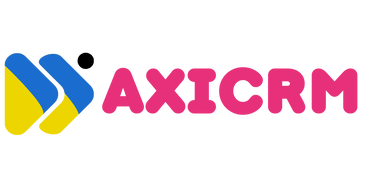Critical path method (CPM) is a project management technique used to plan, schedule, and control projects. It allows project managers to determine the longest sequence of activities (the critical path) and helps identify the shortest time possible to complete a project. For business owners managing complex projects, utilizing CRM offers many advantages that can significantly improve efficiency, optimize resource allocation, and boost the likelihood of on-time project delivery. This article will explore the top 10 main benefits companies can gain by implementing critical path analysis.
- Improves Project Planning
One of the biggest advantages of CRM is that it provides a framework for thoroughly planning all aspects of a project from start to finish. By mapping out every activity and task sequence, CRM enables managers to identify dependencies and optimize workflow. The critical path visualization gives clarity on the order of operations needed to maintain project deadlines. With CPM, planning is comprehensive, logical, and helps avoid delays from overlooked or poorly scheduled activities. The detailed planning process reduces uncertainties and ensures everyone has a clear understanding of scheduling requirements before execution even begins.
- Enables Effective Resource Allocation
CRM provides managers with a better understanding of resource needs, making it easier to optimize resource allocation. The activity sequence and durations provide insights on what workers, equipment, and materials are needed and when they are required. This allows managers to properly estimate resource demand, avoid over-allocation of resources, and prevent bottlenecks or conflicts as the project progresses. With CRM resource scheduling, projects can move forward efficiently, without wasting resources or incurring costs from improper allocation.
- Identifies Schedule Bottlenecks
By displaying the critical path schedule, CRM immediately highlights the longest duration sequence of dependent activities that determines the project finish date. Any delay of critical path activities will delay the entire project, so managers can focus on preventing bottlenecks for these key tasks. The visibility of the critical path and project bottleneck activities enables smart scheduling decisions that reduce delays and keep projects on track. Proactive critical path management is a key benefit of CRM.
- Allows What-If Analysis
CPM models provide a “what-if” analysis capability to test different strategies and find the optimal plan. Managers can adjust activity durations, change sequences, add/remove resource allocations, and shift tasks along the network to see the downstream impacts. This flexibility allows for scenario planning, trade-off analysis, and risk mitigation by providing data to make evidence-based scheduling decisions. The ability to simulate different project pathways results in a carefully constructed schedule that minimizes delays.

- Reduces Costs
By balancing resource requirements and eliminating inefficiencies in the schedule, CRM helps lower overall project costs in several ways. It prevents spending on excess resources that are unused. The optimized schedule also reduces delays that lead to increased costs. CRM allows managers to assess the tradeoffs between project duration and costs for activities and resources to select options aligning with budget requirements. Effective CRM scheduling drives on-time completion, reducing cost overruns that commonly result from delays.
- Facilitates Collaboration & Communication
The detailed CPM schedule provides a common point of reference for all team members and stakeholders to improve collaboration. Everyone can visually see task dependencies, deadlines, and resource needs. This enhances communication by increasing understanding of how individual activities align with collective goals. Moreover, changes can be easily communicated by updating the master schedule which is accessible to all parties. The transparency of CPM fosters a more collaborative environment.
- Enables Better Progress Monitoring
A CRM schedule establishes a project baseline that can be used to closely track actual progress versus planned progress. Managers can monitor start/finish dates, resource utilization, costs, and task completion to identify early on when delays or issues are occurring. The ability to quantify schedule and cost variances allows for quick corrective actions to minimize impact. Without the progress visibility CRM enables, issues may go unnoticed until causing significant setbacks.
- Quantifies Project Tradeoffs
Evaluating the implications of project decisions is made easier with CPM. Managers can model different scenarios and see the effects on the critical path, resource requirements, and overall project duration and cost. The schedule simulations quantify the time and cost tradeoffs so the optimal approach balancing project objectives, budget, and deadlines can be chosen. CRM enables data-driven decisions rather than guessing the best option when project changes occur.
- Facilitates Risk Planning
By reviewing critical path task durations, resource constraints, and schedule sensitivities, managers can assess schedule risks. Mitigation plans can then be incorporated in the CRM schedule to avoid threats of delays from high-risk activities. CRM facilitates contingency planning by identifying where to build in buffer time and how to allocate backup resources if needed. This proactive risk analysis is invaluable for minimizing the likelihood of missed deadlines.
- Provides Schedule Control
One of the greatest advantages of CRM is greater control over project schedules. The detailed planning makes it easier to stick to the schedule while the early warning signals of delays empower managers to quickly respond and keep projects on track. CRM analysis also simplifies recovery scheduling when updates are needed by showing managers how to get a project back to its original duration. By providing greater schedule control, CRM significantly improves on-time performance.
Conclusion
Implementing critical path analysis offers powerful benefits for business owners seeking to improve project performance. From optimized planning to resource allocation, cost management, risk mitigation, progress tracking, and schedule control – CRM strengthens a manager’s ability to execute projects efficiently. The central lesson is that by dedicating time for detailed CRM scheduling, companies can complete projects faster, reduce costs, and meet deadlines consistently. The rewards of effective project management make CRM an invaluable tool for any organization pursuing strategic goals through complex undertakings.
